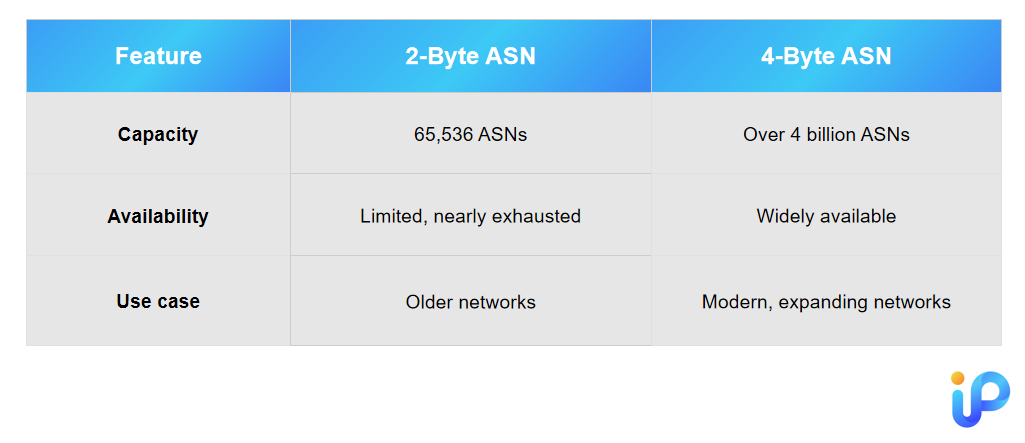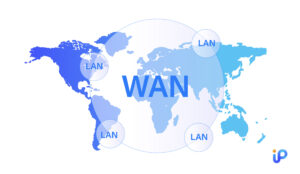7 Min Read | 24 Feb 2025 | ASN, BGP, The Border Gateway Protocol, Autonomous System Number
ASN introduction
An Autonomous System Number (ASN) is a unique identifier assigned to an Autonomous System (AS), which is a collection of IP networks and routers operated by one or more network operators under a single, unified routing policy.
ASNs enable autonomous systems to exchange routing information with each other and with Internet Service Providers (ISPs).
Types of Autonomous Systems
- Multihomed AS: Connects to multiple autonomous systems to improve reliability and redundancy, primarily for its own traffic.
- Stub AS: Connects to one other autonomous system, focusing only on its own traffic without transmitting to others.
- Transit AS: Provides connectivity between autonomous systems, commonly used by large ISPs for traffic exchange.
ASN formats
- 2-Byte ASN (16-bit): Limited to 65,536 identifiers; largely exhausted and rarely issued today.
- 4-Byte ASN (32-bit): Introduced in 2007, supports over 4 billion identifiers, meeting modern network demands.

The shift to 4-Byte ASNs ensures scalability and supports the growing number of autonomous systems for efficient global connectivity.
Border Gateway Protocol
The Border Gateway Protocol (BGP) facilitates the exchange of routing information between autonomous systems, ensuring efficient data routing.
When data travels across the internet, BGP uses ASNs to map the journey. Each time data moves from one autonomous system to another, the ASN of the receiving network is recorded. This ensures that data flows smoothly and avoids disruptions or delays.
ASN in real life
Internet Service Providers (ISPs) need ASNs to manage their networks effectively. They enable efficient data routing, ensuring smooth and fast internet connections. By connecting with multiple networks (Multihomed AS), ASNs enhance redundancy and reliability, minimizing the impact of outages.
Many organizations in Content Delivery Networks (CDNs) like Akamai, Cloudflare, and Fastly. These are operating globally distributed networks designed to deliver web content, videos, and other media to users with high performance and low latency.
Does my network require an ASN?
An ASN is necessary if your organization needs to control how it connects to other networks. For instance:
- Your organization requires annual bidding for internet connectivity contracts.
- Your organization needs to establish connections with two or more networks.
How to obtain an ASN?

ASNs are assigned by one of the five Regional Internet Registries (RIRs) based on geographical regions:
- ARIN: North America
- RIPE NCC: Europe, Middle East, and parts of Africa
- APNIC: Asia and Pacific
- LACNIC: Latin America and the Caribbean
- AFRINIC: Africa
To obtain an ASN, you must contact the respective RIR. Be prepared to provide information about your network’s size and the services it offers.
IPv4 Superhub offers secure and transparent solutions for buying, selling, and managing ASNs. Whether you need a private brokered service or an online auction marketplace, our expert team ensures a smooth process tailored to your networking needs.
Contact IPv4 Superhub today to explore reliable solutions for acquiring ASNs and managing network resources. Let us simplify your connectivity with trusted expertise.




